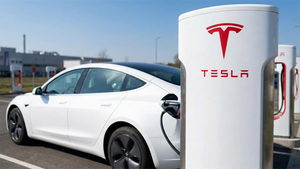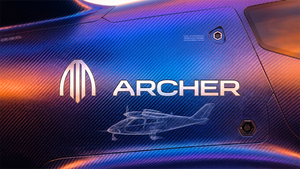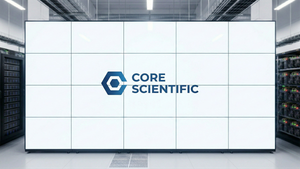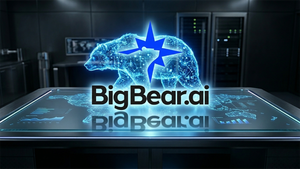Consumer packaging demand is driven by evolving consumer preferences, sustainability trends, and the rise of e-commerce. The demand for convenient, lightweight, and eco-friendly packaging has surged, influenced by an increasing focus on environmental impact and waste reduction.
NEWARK, DE / ACCESSWIRE / October 1, 2024 / The consumer packaging market in Brazil demonstrated stable growth in 2023, recording a year-on-year (y-o-y) increase of 2.5%, with sales totaling USD 11.1 billion. According to recent industry analysis, the Brazil consumer packaging industry is projected to expand at a CAGR of 2.8% over the next decade, reaching a market size of USD 14.7 billion by 2033.
The food sector is expected to remain a key driver of demand during this period, accounting for approximately 55% of the total market share. As consumer preferences for convenience and safety in food packaging continue to rise, the demand for innovative packaging solutions is anticipated to follow suit.
Plastic is forecasted to maintain its position as the material of choice in Brazil's consumer packaging industry. In 2023, plastic accounted for 50% of the total market, with this share expected to increase at a CAGR of 2.9% over the forecast period. Its widespread use is attributed to its versatility, durability, and cost-effectiveness in protecting and storing a wide range of consumer products.
As an integral part of the modern economy, consumer packaging plays a pivotal role in preserving product quality and facilitating effective marketing strategies across multiple industries. In Brazil, consumer packaging adoption remains robust in sectors such as food & beverages, cosmetics, pharmaceuticals, and consumer electronics. This broad application is expected to continue fueling the market's growth through 2033.
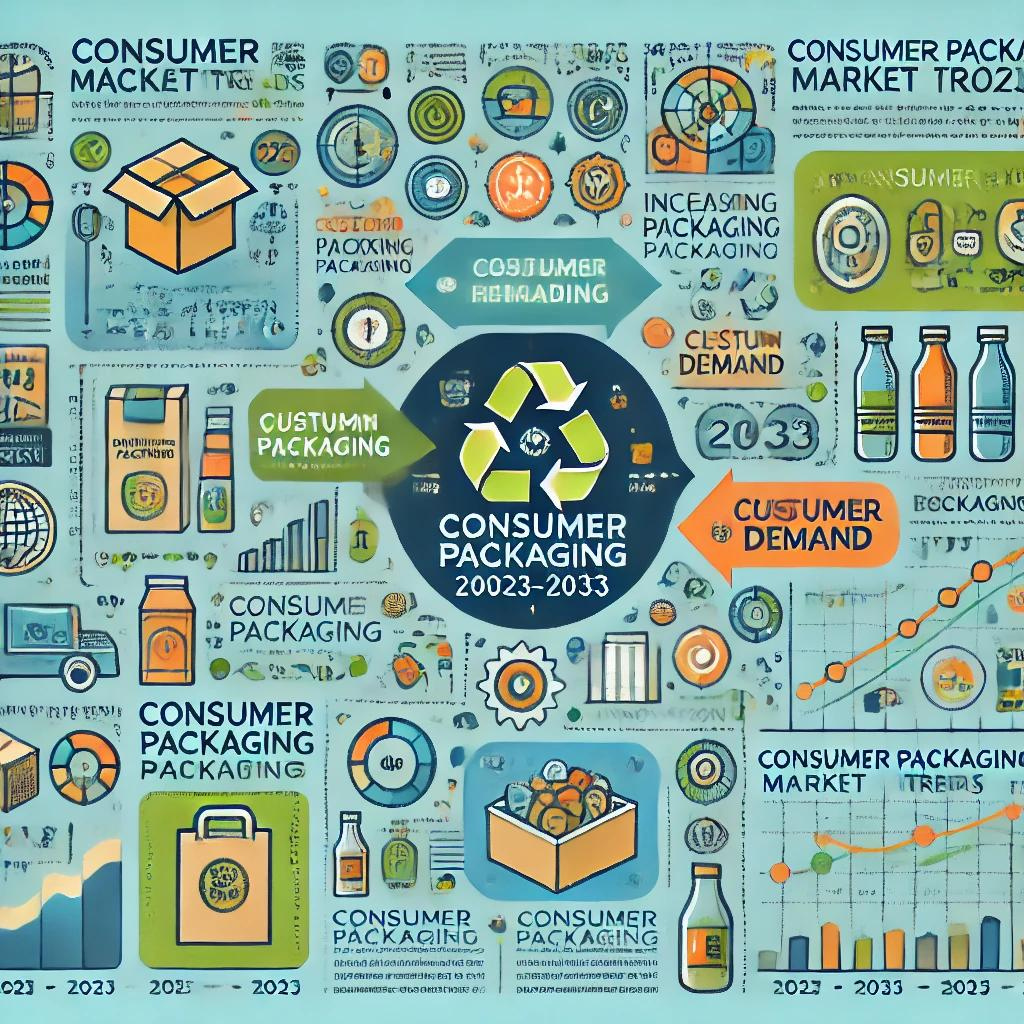
"The consumer packaging industry in Brazil is rapidly evolving, driven by growing demand for sustainable solutions, e-commerce expansion, and changing consumer preferences. Companies are focusing on innovative designs and eco-friendly materials to meet environmental regulations and cater to an increasingly eco-conscious market." Says a Lead Consultant Ismail Sutaria in Packaging at Future Market Insights (FMI).
Prominent Drivers of the Consumer Packaging Industry Analysis in Brazil:
Rising Consumer Demand for Sustainable Packaging: Brazilian consumers are increasingly prioritizing environmentally friendly products, pushing the demand for recyclable, biodegradable, and compostable packaging solutions. This shift has encouraged companies to adopt sustainable materials, impacting packaging design and production.
Growth of E-Commerce: The rapid expansion of online shopping in Brazil, especially post-pandemic, has significantly increased the need for robust and secure packaging solutions. Packaging that ensures product protection during transportation is a critical factor driving industry growth.
Increasing Urbanization and Middle-Class Expansion: With more Brazilians moving to urban areas and an expanding middle class, there is growing demand for convenience-oriented packaging, such as single-serve or ready-to-eat products. This trend is driving innovation in consumer packaging formats.
Focus on Product Differentiation and Branding: Companies in Brazil are increasingly using packaging as a tool for product differentiation and brand communication. Eye-catching designs, innovative materials, and functional packaging that enhances the user experience are becoming key drivers of competition in the market.
Technological Advancements in Packaging Solutions: The adoption of advanced packaging technologies, such as smart packaging and digital printing, is enhancing efficiency and reducing production costs. These innovations allow for greater customization, traceability, and consumer engagement, driving growth in Brazil's consumer packaging sector.
Challenges Faced by the Consumer Packaging Industry Analysis in Brazil:
Environmental Regulations and Sustainability Pressure: With growing concerns over plastic waste and environmental impact, the packaging industry in Brazil faces strict regulations on single-use plastics and increased pressure to adopt sustainable practices. Companies must invest in eco-friendly materials like bioplastics and recyclable packaging, which can raise production costs and require new technologies.
Rising Raw Material Costs: The fluctuating prices of raw materials such as plastic, paper, and aluminum affect production costs. Brazil's reliance on imported materials due to domestic supply limitations can lead to cost volatility, directly impacting the profitability of packaging companies.
Economic Instability and Inflation: Brazil's fluctuating economy and high inflation rates pose significant challenges for the packaging sector. Consumer spending power is affected, which in turn impacts demand for packaged goods, putting pressure on packaging manufacturers to manage costs while maintaining quality.
Logistical and Infrastructure Challenges: Brazil's vast geography and underdeveloped infrastructure make distribution and logistics difficult. Packaging companies face increased costs and delays in transporting raw materials and finished goods across the country, especially in remote regions with poor road or port access.
Adoption of New Technologies: The rapid advancement of packaging technologies, including automation, smart packaging, and digital printing, requires Brazilian companies to modernize. However, many small and medium-sized enterprises (SMEs) struggle with the capital investment needed to adopt these innovations, leading to challenges in competitiveness and efficiency.
Browse full Report: https://www.futuremarketinsights.com/reports/consumer-packaging-industry-analysis-in-brazil
Competitive Landscape
Brazil's consumer packaging industry is highly competitive, with several key players operating. Top consumer packaging companies listed in the report include WestRock Company, Amcor PLC, Klabin SA, Tetra Pak International SA, Sonoco Products Company, Smurfit Kappa Group, NEFAB Embalagens LTDA, Graphic Packaging International LLC, SSI Schaefer LTDA, and Trivium Packaging.
Brazil's leading consumer packaging producers are innovating to create new eco-friendly packaging solutions with unique designs. This not only helps them entice environmentally sensitive customers, but it also allows them to circumvent environmental rules. They are constantly expanding their product portfolio to meet the increased demand from metropolitan homes.
Several organizations use strategies such as distribution agreements, collaborations, facility expansions, acquisitions, and mergers to grow their presence in Brazil and other markets. This has resulted in a highly competitive and innovative industry that is driving expansion while also providing more advanced and sustainable packaging options to customers worldwide.
Recent Developments in the Brazil Consumer Packaging Industry
In December 2023, Sonoco Products acquired Inapel Embalagens Ltda. in Brazil to expand its flexible packaging service capabilities.
In August 2022, Canpack announced an investment of around US$ 150 million in a new production facility in Poços de Caldas, Brazil, to increase its manufacturing capabilities of aluminum beverage cans.
Brazil Consumer Packaging Industry Analysis by Category
By Packaging Format:
-
Flexible Packaging
Pouches
Bags & Sacks
-
Rigid Packaging
Trays
Blisters
Tubs and Lids
By Material:
-
Plastics
Polyethylene
Polypropylene
Paper
Aluminum Foil
Wood
-
Metal
Aluminum
Tin
Steel
By Technology:
Injection Molding
Thermoforming
Blow Molding
Other Technologies
Extrusion
By Level of Packaging:
Primary
Secondary
Tertiary
By End-use:
-
Food
Pet Food
RTE Food
Pulses and Cereals
-
Beverage
Alcoholic
Non-alcoholic
Personal care & Hygiene
Homecare & Toiletries
Pharmaceuticals
Consumer Electronics
Medical Devices
By Distribution Channel:
Online
Offline
Authored by:
Ismail Sutaria (Lead Consultant, Packaging and Materials) has over 8 years of experience in market research and consulting in the packaging & materials industry. Ismail's strength lies in identifying key challenges faced by the client and offering logical and actionable insights to equip the clients with strategic decision-making power.
Ismail has been an instrumental part of several transformational consulting assignments. His key skills include competitive benchmarking, opportunity assessment, macroeconomic analysis, and business transformation advisory. Ismail is an MBA holder in Marketing and has a Bachelor's Degree in Mathematics.
Have a Look at Related Research Reports on the Packaging Domain:
The demand for consumer packaging is rapidly increasing, driven by e-commerce growth, sustainability trends, and shifting consumer preferences for eco-friendly, convenient, and customizable packaging solutions.
The consumer packaging industry in China is estimated to be valued at USD 105.5 billion in 2024 and is projected to reach USD 162.7 billion by 2034. Sales revenue is anticipated to expand at a CAGR of 5.7% over the forecast period.
The growing demand for personalized branding and eco-friendly solutions is driving the rapid expansion of the custom packaging box market across various industries, enhancing customer experience and brand recognition.
The multi-functional packaging market is valued at USD 12.5 billion and is likely to exhibit a positive growth trend in the coming decade. It is also estimated that by 2034, the market valuation is likely to surpass USD 19.3 billion, showcasing a decent CAGR of 4.1%.
Smart packaging refers to packaging systems that incorporate advanced technologies to enhance functionality beyond traditional packaging.
The growing demand for pharmaceutical packaging is driven by increasing drug production, heightened regulatory requirements, and the need for enhanced protection and traceability in the global healthcare market.
The growth of packaging tubes is driven by their versatility, sustainability, and consumer demand for convenient, eco-friendly solutions that enhance product protection and ease of use.
The eye cosmetic packaging sector is experiencing rapid growth, driven by innovative designs and increasing consumer demand for premium, eco-friendly packaging solutions that enhance product appeal and functionality.
The global lubricant packaging market is estimated to top USD 12.06 billion in 2023 and is projected to reach USD 20.4 billion by 2033, moving forward at a CAGR of 5.4%.
The increasing demand for pharmaceutical plastic packaging is driven by the need for secure, lightweight, and durable solutions that ensure product safety and compliance with regulatory standards.
About Future Market Insights (FMI)
Future Market Insights, Inc. (ESOMAR certified, recipient of the Stevie Award, and a member of the Greater New York Chamber of Commerce) offers profound insights into the driving factors that are boosting demand in the market. FMI stands as the leading global provider of market intelligence, advisory services, consulting, and events for the Packaging, Food and Beverage, Consumer Technology, Healthcare, Industrial, and Chemicals markets. With a vast team of over 400 analysts worldwide, FMI provides global, regional, and local expertise on diverse domains and industry trends across more than 110 countries.
Contact Us:
Future Market Insights Inc.
Christiana Corporate, 200 Continental Drive,
Suite 401, Newark, Delaware - 19713, USA
T: +1-347-918-3531
For Sales Enquiries: sales@futuremarketinsights.com
Website: https://www.futuremarketinsights.com
LinkedIn | Twitter | Blogs | YouTube
SOURCE: Future Market Insights Inc.
View the original press release on accesswire.com


